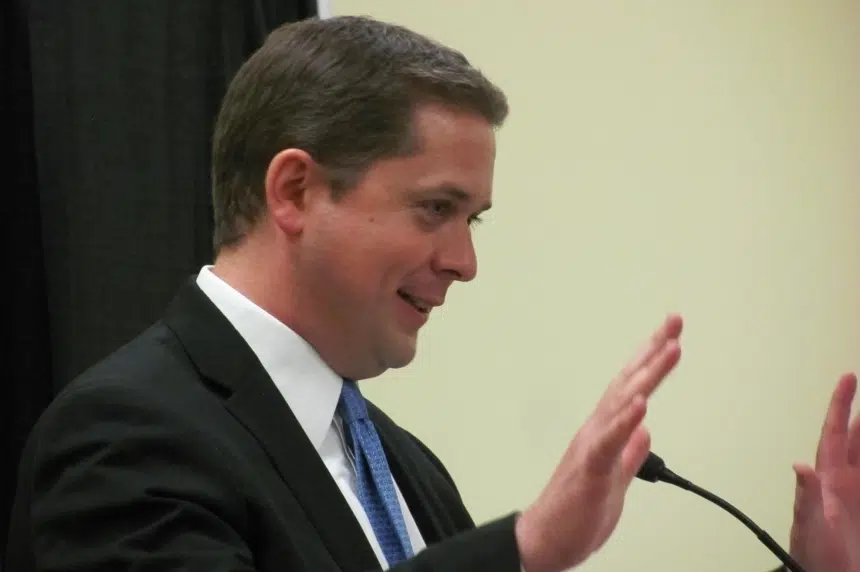He’s the leader of the Conservative Party of Canada and could be the country’s next Prime Minister, but it appears a good chunk of voters don’t know who Andrew Scheer is.
The long-time Regina MP and former Speaker of the House was elected to the Conservative Party’s leadership on Saturday.
Over the next two days, Mainstreet Analytics asked voters about Scheer and their voting intentions.
A third of those asked said they were unfamiliar with Scheer, another third said they were unsure about him. Twenty-one per cent of respondents liked him, and only 16 per cent didn’t like him.
Despite voters mostly being on the fence about him, Scheer’s election gave the Conservative Party a boost in voter intentions from a poll done two weeks before.
Of those asked, two per cent more decided and leaning voters said they would go with the Conservative party, taking it from 31 per cent to 33 per cent — the Liberal Party stayed at 41 per cent of support.
Conservative Party support rose in every province after Scheer’s election except for B.C. Predictably, the largest jump in support for the party was in Saskatchewan, where support rose six per cent.
One of Scheer’s biggest applause lines during his acceptance speech was his interest in keeping free speech on university campuses, claiming right-wing views are often suppressed. One of this campaign promises was to withdraw federal funding from universities which don’t ensure free speech.
But, according to Mainstreet Analytics’ poll, 45 per cent of those people asked about it, said grants should be withdrawn — 38 per cent of people agreed, while 17 per cent of people weren’t sure.
The poll was done in partnership with Postmedia, and the margin of error is +/- 1.85 percentage points, 19 times of out 20. Two-thousand-eight-hundred people were polled in a random sampling on May 28 and 29, using both landlines and cell phones.











